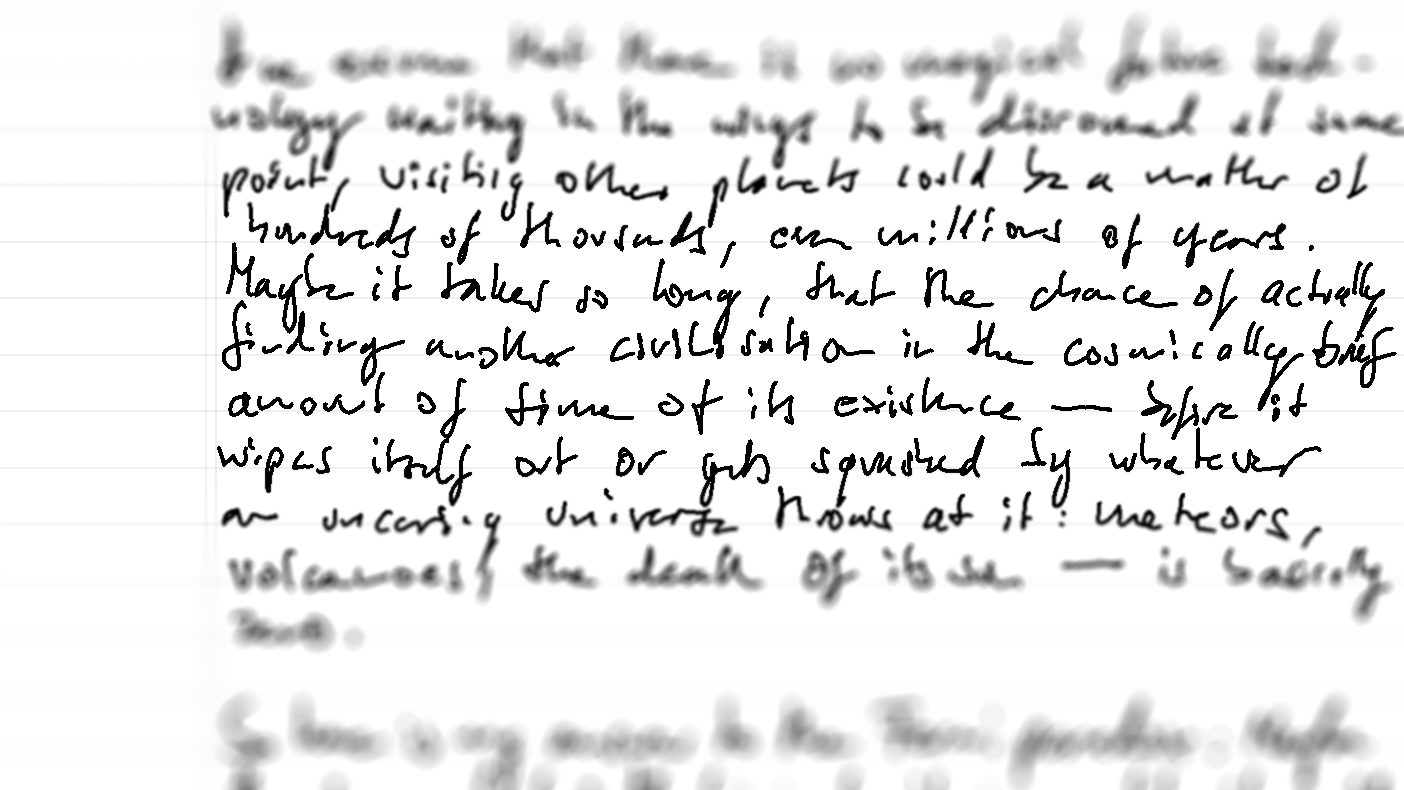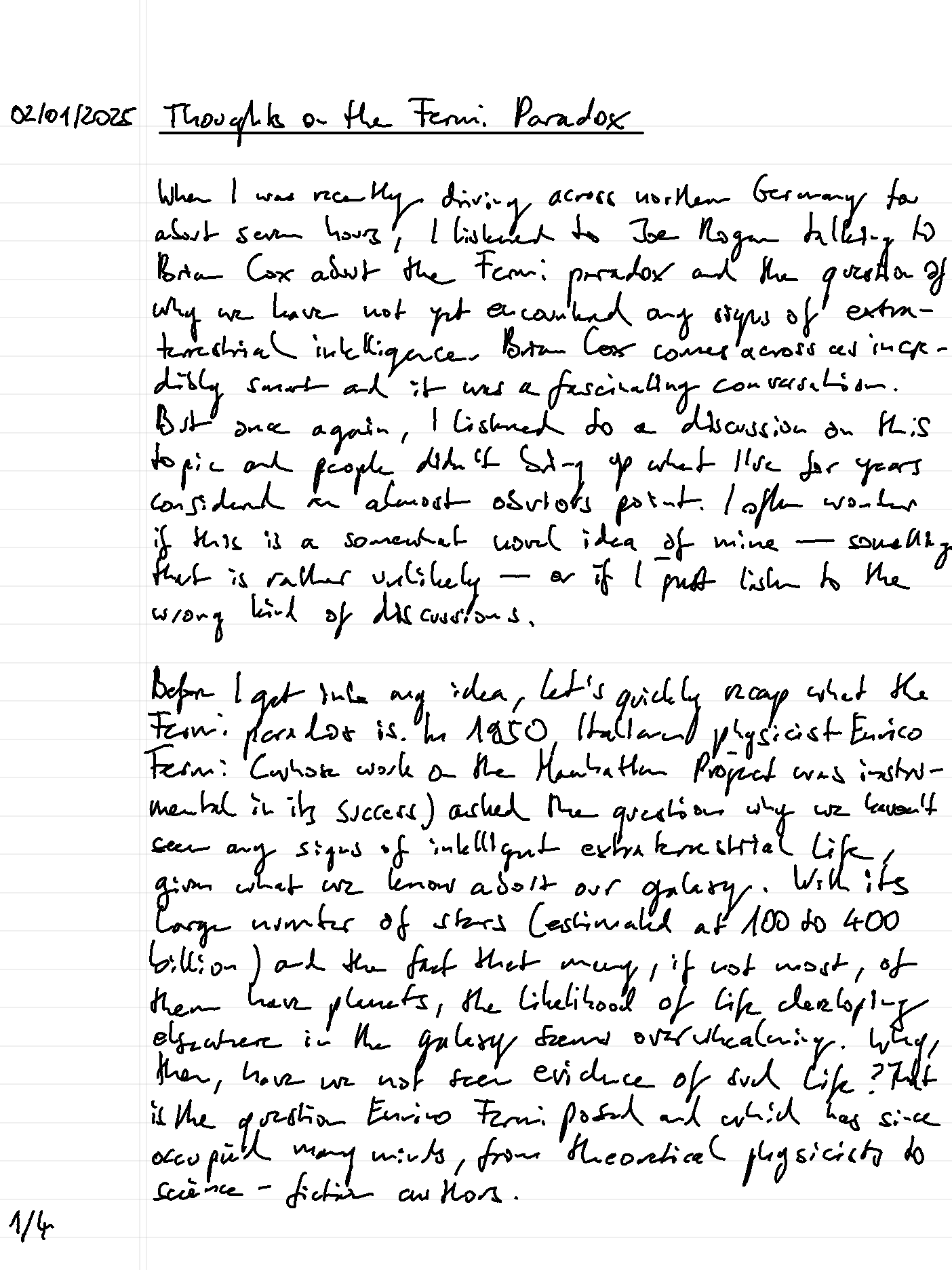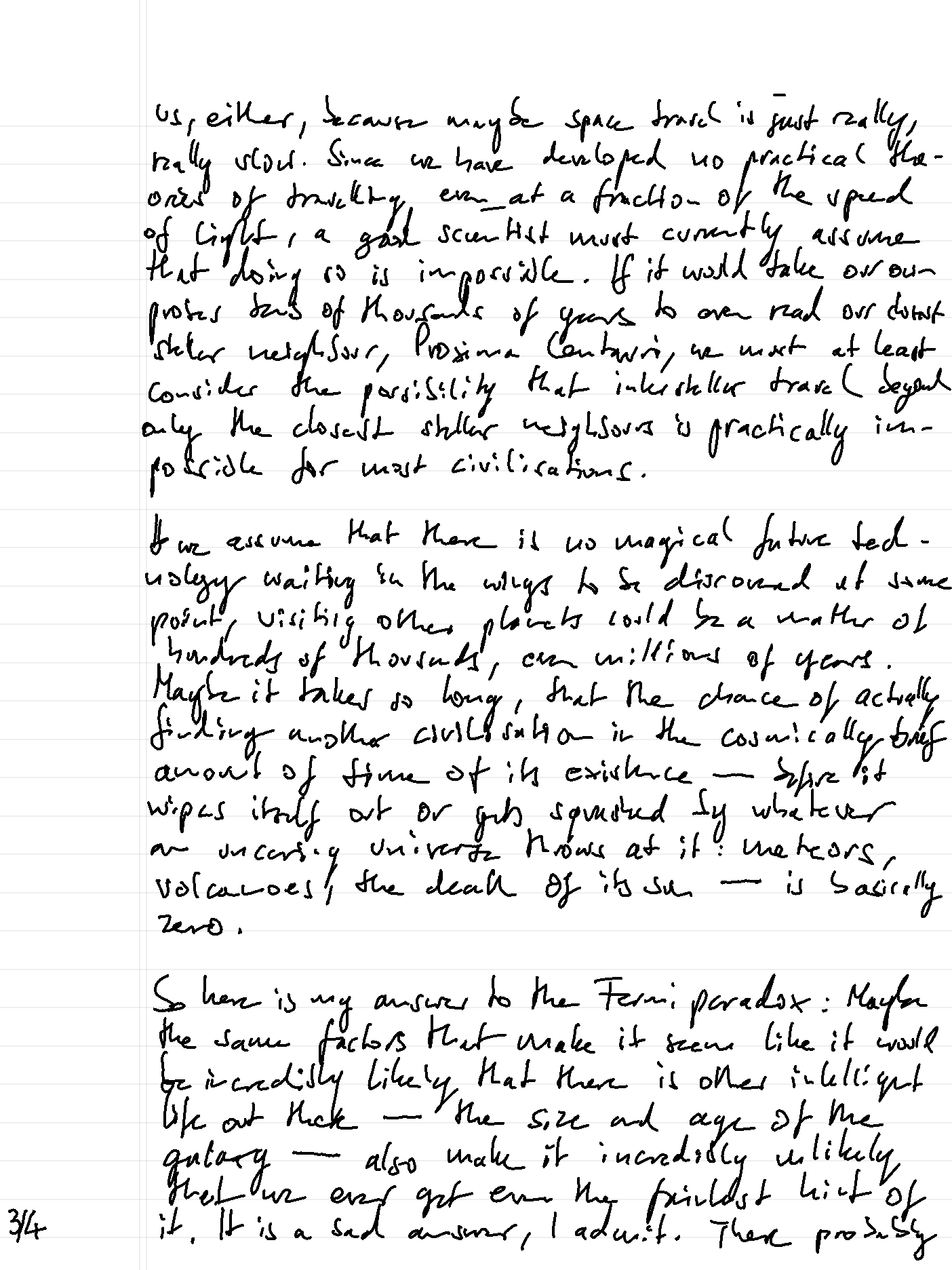Thoughts on the Fermi Paradox
Joe Rogan, Brian Cox and why I think we haven't found signs of intelligent life out there. And probably never will.

When I was recently driving across northern Germany for about seven hours, I listened to Joe Rogan talking to Brian Cox about the Fermi paradox and the question of why we have not yet encountered any signs of extraterrestrial intelligence. Brian Cox comes across as incredibly smart and it was a fascinating conversation. But once again, I listened to a discussion on this topic and people didn’t bring up what I’ve for years considered an almost obvious point. I often wonder if this is a somewhat novel idea of mine — something that is rather unlikely — or if I just listen to the wrong kind of discussions.
Before I get into my idea, let’s quickly recap what the Fermi paradox is. In 1950, Italian physicist Enrico Fermi (whose work on the Manhattan Project was instrumental in its success) asked the question why we haven’t seen any signs of intelligent extraterrestrial life, given what we know about our galaxy. With its large number of stars (estimated at 100 to 400 billion) and the fact that many, if not most, of them have planets, the likelihood of life developing elsewhere in the galaxy seems overwhelming. Why, then, have we not seen evidence of such life? That is the question Enrico Fermi posed and which has since occupied many minds, from theoretical physicists to science fiction authors.
Now, here’s what I think about this. Yes, given the number of stars and planets in the Milky Way, it is probably very likely that intelligent like has developed, or will be developing, somewhere else. But our galaxy is not only full of stars, it is also very big. And the universe has been around for around 14 billion years (give or take a few million). So while it is likely that there’s intelligent life out there, isn’t it also likely that we simply missed it because it has developed a few million years earlier than our civilisation or will only develop in a couple billion years when our sun has long run out of fuel? So maybe we just missed the other intelligent life in the Milky Way simply because civilisations maybe just don’t last very long when considered at a cosmological timescale.
And the other significant factor is, of course, that the galaxy is really fucking big, of course. There could be hundreds of civilisations having galaxy-spanning wars and blowing up stars on the other side of the Milky Way right now and we would be none the wiser. Both because the light from those supernovas would take thousands of years to get here and also because we simply can’t see anything that’s hidden behind the bulge of incredibly dense stars in the centre of the galaxy. Maybe all of the other civilisations that exist out there are just too far away, and put out too weak signals, for us to detect them.
And they probably can’t send a probe over to visit us, either, because maybe space travel is just really, really slow. Since we have developed no practical theories of travelling even at a fraction of the speed of light, a good scientist must currently assume that doing so is impossible. If it would take our own probes tens of thousands of years to ever reach our closest stellar neighbour, Proxima Centauri, we must at least consider the possibility that interstellar travel beyond only the closest stellar neighbours is practically impossible for most civilisations.
If we assume that there is no magical future technology waiting in the wings to be discovered at some point, visiting other planets could be a matter of hundreds of thousands, even millions of years. Maybe it takes so long, that the chance of actually finding another civilisation in the cosmically brief amount of time of its existence — before it wipes itself out or gets squashed by whatever an uncaring universe throws at it: meteors, volcanoes, the death of its sun — is basically zero.
So here is my answer to the Fermi paradox: Maybe the same factors that make it seem like it would be incredibly likely that there is other intelligent life out there — the size and age of the galaxy —‘also make it incredibly unlikely that we ever get even the faintest hint of it. It is a sad answer, I admit. There probably is — or was, or will be — other intelligent life out there. It’s just that the probability of finding it is as small as the probability of it existing is big.




